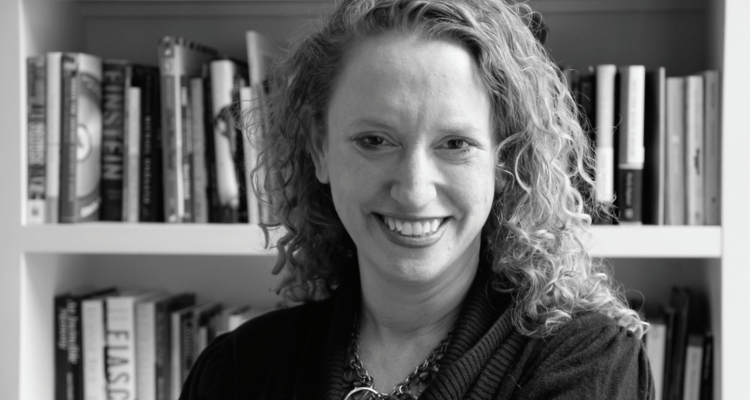“Free speech is under the greatest threat in recent memory,” said Suzanne Nossel, PEN America chief executive officer and free speech activist who gave a talk on March 11 in the Charles F. Dolan School of Business Dining Room. The talk was titled “Whose Freedom, Whose Speech: Free Speech in the Age of Donald Trump,” and addressed the current issues facing free speech in the United States.
Among the issues facing free speech that Nossel addressed were technology and social media. While she remains an advocate for free speech, Nossel addressed concerns that it is being used in ways that violates the free speech of others, and that the first amendment is not always enough to protect free speech. Nossel called social media a “breeding ground for hate speech,” and then stated, “These platforms are not subject to the First Amendment.” Nossel pointed out that the First Amendment only restricts government intervention of free speech, but that technology tycoons such as Mark Zuckerberg are free to decide what is and is not able to be said on their platforms.
She also addressed ideological polarization, ignorance and indifference as prime threats against free speech. Nossel declared that “free speech is like the air we breath, vital and unnoticed,” and also pushed for “a non-partisan movement to protect free speech.”
Nossel also focused heavily on the Trump administration, and, in her own words, “President Trump’s escalating campaign to discredit the press.” She discussed at length a suit that her organization, PEN America, is filing against President Donald Trump. PEN America, of which Nossel is the CEO, is an organization that advocates for human rights and free expression around the world as well as within the United States.
PEN America’s suit claims that President Trump is “using the machinery of government to retaliate or threaten reprisals against journalists and media outlets for coverage he dislikes,” and that he exhibits “antagonism toward the press that we’ve long associated with authoritarian rulers around the world.” Nossel stressed that one of the most important facets of free speech is the ability to give or receive information, further claiming that Trump violates the rights of journalists and audience when he “discredit[s] the press.”
Nossel also discussed free speech on college campuses, saying, “Free speech is more than saying whatever you want, it is making sure that every student has the ability to participate.” She emphasized the importance of listening to others’ opinions, especially speakers who come to campus with opposing views. Regarding visiting speakers and lecturers, Nossel said, “If outcry shuts down a lecture or speech, only the loudest voices prevail.” She stated that instead of protesting the speaker with the intention of getting their invite rescinded, it is more beneficial to have a dialogue with that person in which more voices can be heard.
“I think Nossel was very well spoken and highlighted a lot of very interesting points about our current understanding of the news, the first amendment and our role as students and citizens in engaging with this kind of content,” said Olivia McEvoy ‘19 via email, who attended the event for a News Media and Democracy Class. “She also gave us insight into a report (to be released the next day) on fake news during the midterm elections, a topic that was very intriguing to me.” McEvoy is referencing PEN America’s report entitled “Truth on the Ballot: Fraudulent News, The Midterm Elections, and Prospects for 2020” that came out on March 12, the day after Nossel spoke. The report reached a number of conclusions involving topics such as domestic disinformation as well as the effects of Russian disinformation in American elections.
Nossel made it clear that she believes that every person, Democrat or Republican, should be in favor of free speech. She also made it clear that every student on every campus should be concerned about how their university addresses issues of free speech.
“I think that Nossel brought up a really strong point when she addressed free speech overall: it is something that is protected, but often not sufficient. So I guess when looking at Fairfield’s campus, just as I would any other institution, it is important to look for what more can be done,” said McEvoy.


Leave a Reply